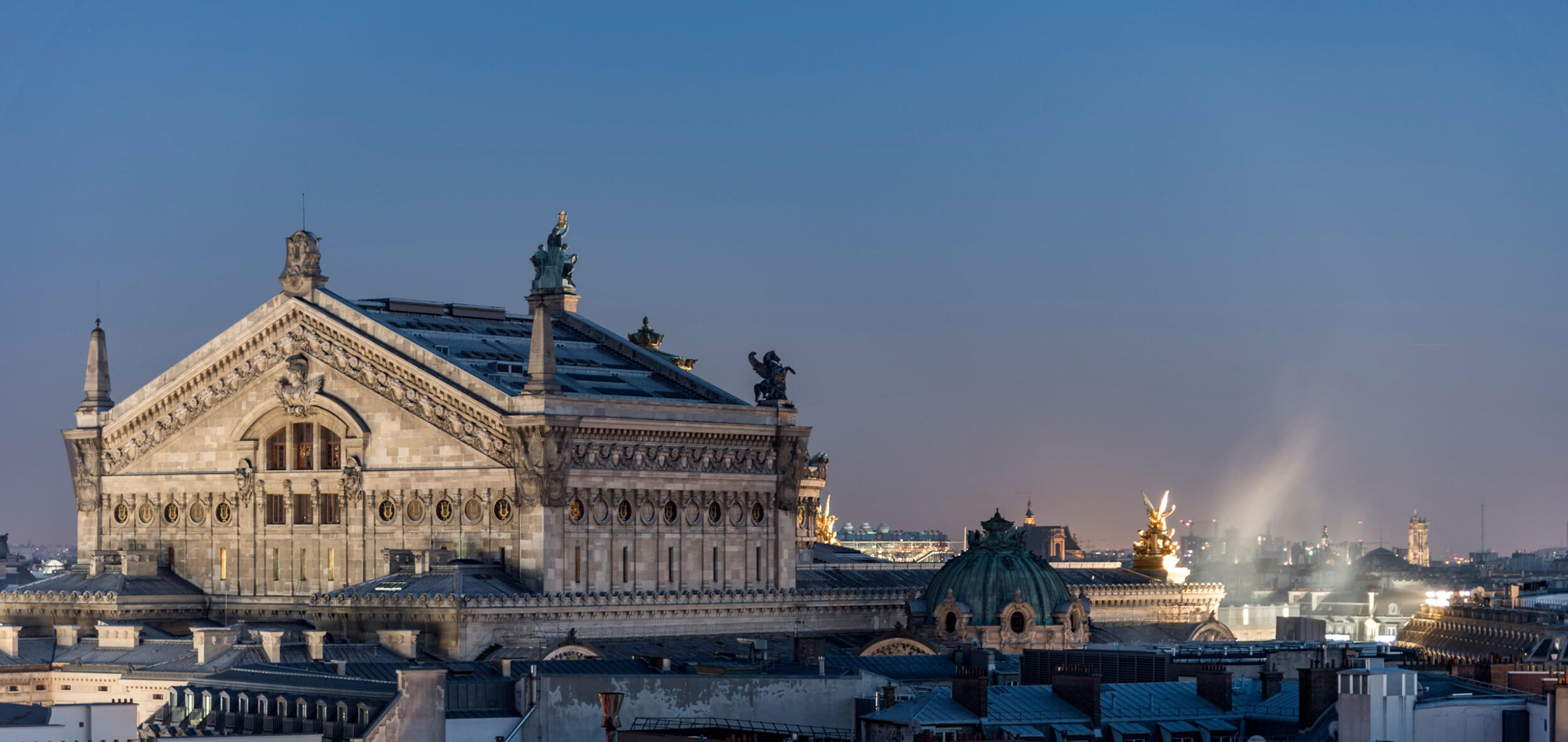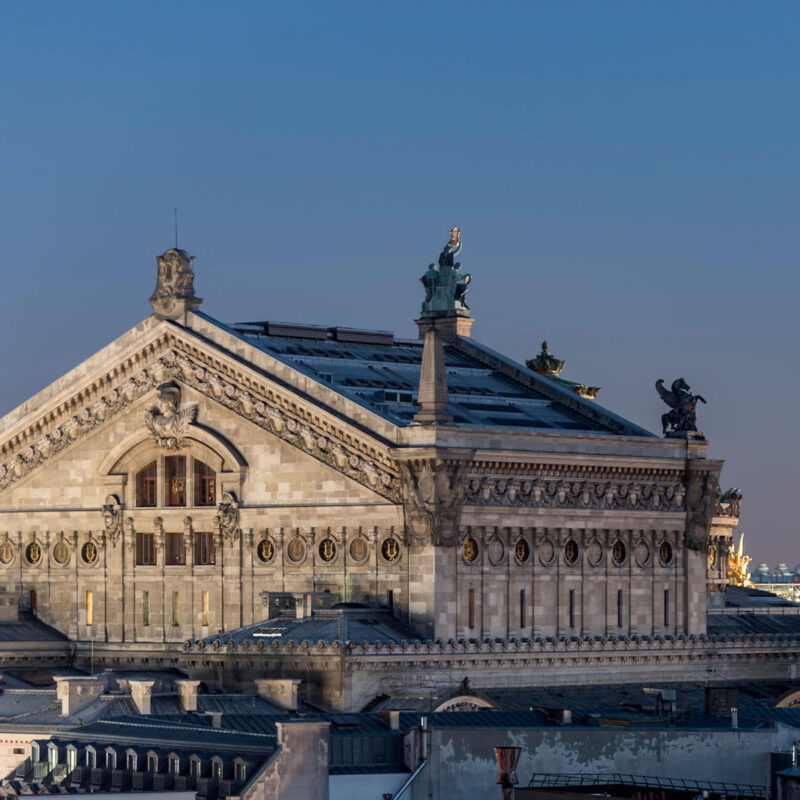Le Palais Royal
We suggest a half day out just 10 minutes away from the Hôtel des Etats-Unis Opéra. History, arcades, theatres, old shops, French style gardens, historic cafés, the Mecca of French gastronomy, works of art… the Palais Royal caters for a wide range of interests.
The history of the Palais Royal
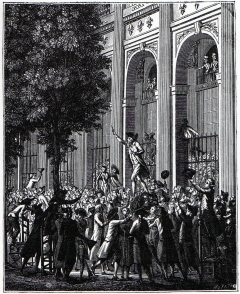
The Palais Royal is a group of monuments (palace, gardens, galleries, theatre) with an important place in both the history of France and the life of Paris.
It was built by Richelieu in 1628 and then bequeathed to King Louis XIV where he resided as a child. The palace was given to Philippe d’Orléans, grandson of Louis XIII and cousin of King Louis XVI, who was renamed Philippe Egalité during the revolution and voted for King to be put to death in 1793. He was guillotined a few months later.
The Palais Royal was in the spotlight during the French Revolution when it was the focal point. On 12 July 1789, the revolutionary Camille Desmoulins made the fiery speech that prompted the storming of the Bastille two days later.
Returned in 1814 to Louis Philippe, the future monarch and son of Philippe d’Orléans, from 1871 the Palais Royal was assigned for the use of several administrative bodies: the Council of State, the Constitutional Council and the Ministry of Culture.
The Palais Royal also has a long history related to the theatre.
- Richelieu had his theatre at the Palais Royal and Molière occupied it in 1660. Lully set the Opéra up there which burned down in 1781
- The modern history of the Comédie-Française began there in 1799
- Finally, it opened as the Théâtre Montansier in 1790 and later became the Théâtre Palais Royal focusing on “boulevard theatre”.
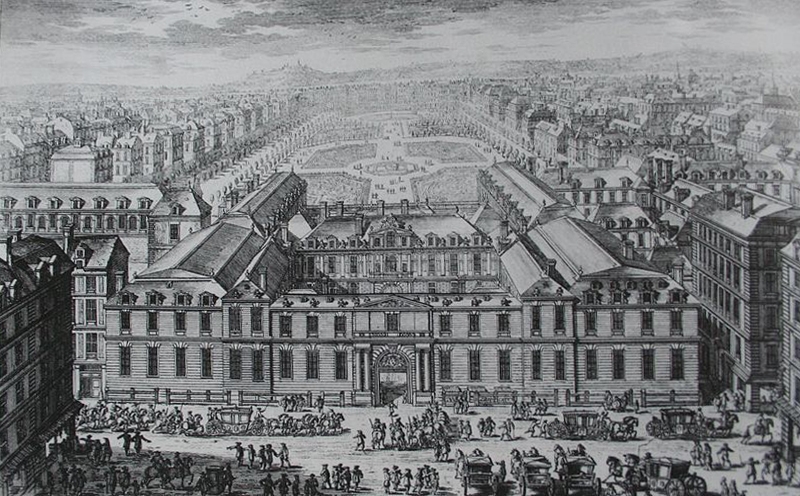
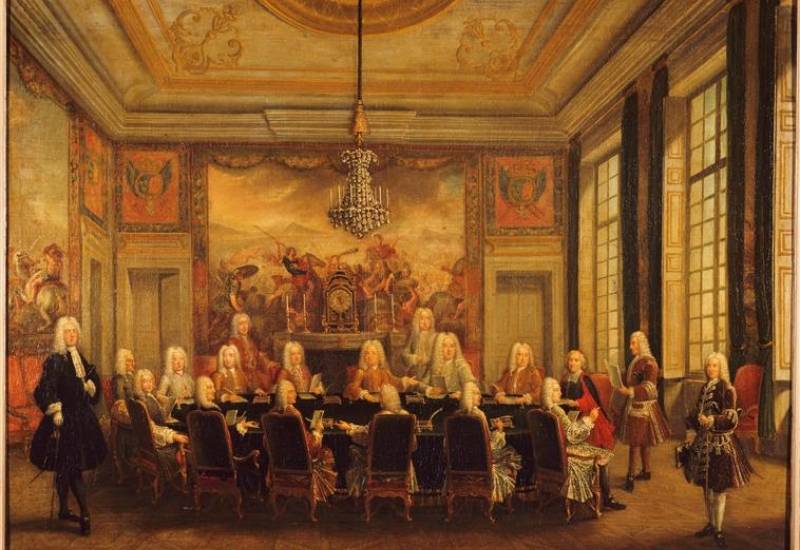
What is there to see at the Palais Royal?
The Cour d’Honneur, the Buren columns and the French style gardens
You can see the famous Buren columns in the courtyard, commissioned by Jack Lang, Minister of Culture, in 1985. The work occupies 3000m² and consists of 260 marble columns. The work is designed on two planes. The project, completed in 1986, was highly controversial.
You can then continue walking through its French-style gardens and relax on a chair near the pool.
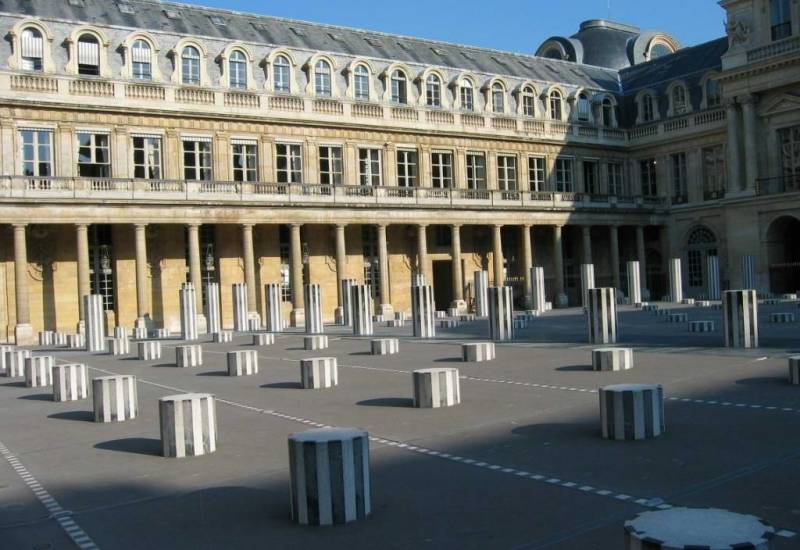
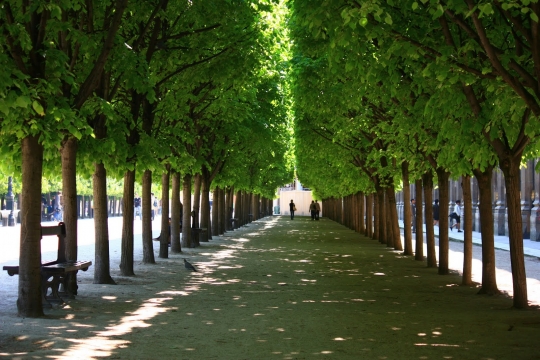
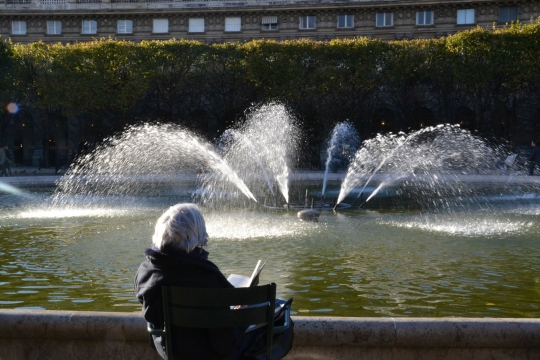
Opening hours for the Cour d’Honneur and gardens:
Every day:
- 1 October – 31 March: 7:30 a.m. to 8:30 p.m.
- 1 April – 31 May: 7:00 a.m. to 10:15 p.m.
- 1 June – 31 August: 7:00 a.m. to 11:00 p.m.
- 1 September – 30 September: 7:00 a.m. to 9:30 p.m.
The galleries are open continuously.
The galleries of the Palais Royal
Galleries span three sides of the palace and enclose it. There are numerous shops and cafés there, including the Corraza café, where the Jacobins met during the French Revolution. It is a pleasant, picturesque walk.
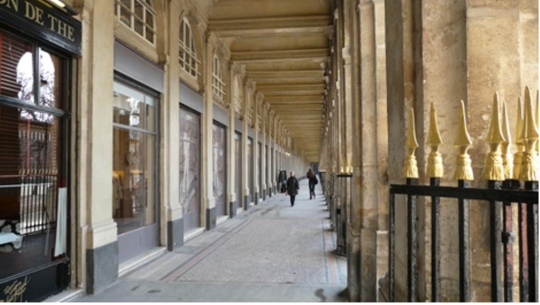
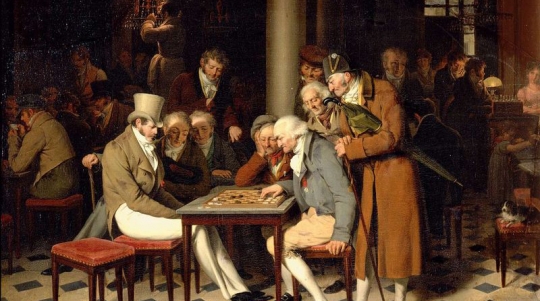
Eating in the Grand Véfour restaurant
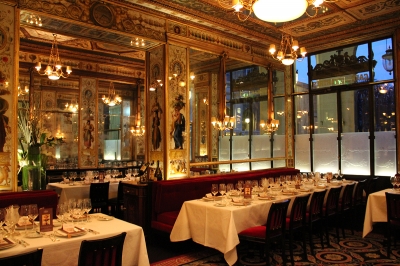
In the famous 2 Michelin starred restaurant Le Grand Véfour, the Michelin star chef Guy Martin will take you to the very heights of taste and flavours in a royal setting.
http://www.grand-vefour.com/legrandvefour.html
Rue Montpensier, its theatre and cafés
Leaving the palace, take rue Montpensier. This charming street hides many treasures.
Firstly, the Théâtre du Palais Royal which was built between 1786 and 1790. You will notice the architecture which prompted its listing as a historic monument.
The theatre also presents concerts on Mondays:
http://theatrepalaisroyal.com/category/spectacles/concerts/
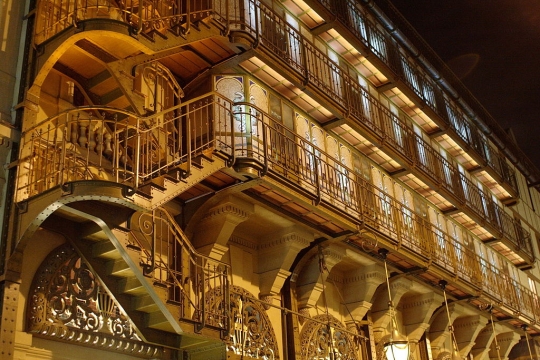
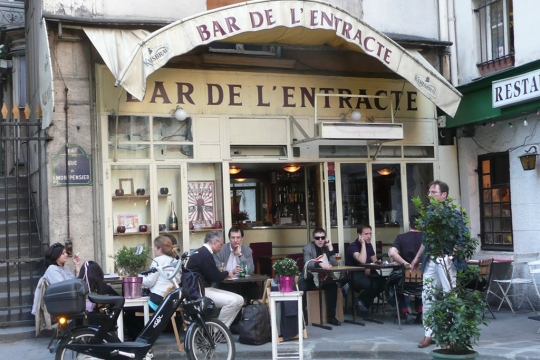
Find out about guided tours and conferences at the Palais Royal:
In French: http://palais-royal.monuments-nationaux.fr/
In English: http://palais-royal.monuments-nationaux.fr/en/
Note that the Comédie Française is not open for visits other than pre-planned guided tours in French.
